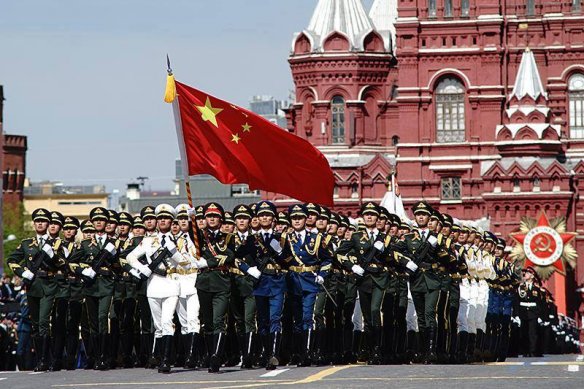
Chinese troops on the march in the Red Square
With the explosion of the Ukraine crisis in spring 2014, Russia made a determined effort to upgrade its strategic partnership with China and achieved instant success. Large-scale economic contracts were signed in a matter of a few months, and the military parades in Moscow and Beijing in respectively May and September 2015, in which the two leaders stood shoulder to shoulder, were supposed to show the readiness of two world powers to combine their military might. In fact, however, the partnership has encountered serious setbacks and as of spring 2016, is significantly off-track.
It is the economic content of bi-lateral cooperation that has registered the most obvious decline. The volume of trade, which the officials promised to double in just a few years, actually contracted in 2015 by about a third comparing with 2014. The economic crisis in Russia and the sharp decline in purchasing power were the main reasons for this setback, and there are no reasons to expect an improvement in 2016 or in the years to come. The dramatic drop of oil prices in 2015 has not only devalued the much-trumpeted “400 billion dollars” gas contract signed in May 2014. It has also destroyed the economic foundation of the partnership because the development of “green fields” in East Siberia and construction of pipelines to China has become entirely cost-inefficient.
The rest of the article is in Contemporary Security Policy, posted April 22.